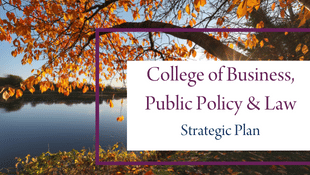-
Courses

Courses
Choosing a course is one of the most important decisions you'll ever make! View our courses and see what our students and lecturers have to say about the courses you are interested in at the links below.
-
University Life

University Life
Each year more than 4,000 choose University of Galway as their University of choice. Find out what life at University of Galway is all about here.
-
About University of Galway

About University of Galway
Since 1845, University of Galway has been sharing the highest quality teaching and research with Ireland and the world. Find out what makes our University so special – from our distinguished history to the latest news and campus developments.
-
Colleges & Schools

Colleges & Schools
University of Galway has earned international recognition as a research-led university with a commitment to top quality teaching across a range of key areas of expertise.
-
Research & Innovation

Research & Innovation
University of Galway’s vibrant research community take on some of the most pressing challenges of our times.
-
Business & Industry

Guiding Breakthrough Research at University of Galway
We explore and facilitate commercial opportunities for the research community at University of Galway, as well as facilitating industry partnership.
-
Alumni & Friends

Alumni & Friends
There are 128,000 University of Galway alumni worldwide. Stay connected to your alumni community! Join our social networks and update your details online.
-
Community Engagement

Community Engagement
At University of Galway, we believe that the best learning takes place when you apply what you learn in a real world context. That's why many of our courses include work placements or community projects.
News archive PhD Scholarship at NUI Galway on AI and the Technological Disruption of Law
PhD Scholarship at NUI Galway on AI and the Technological Disruption of Law
Project Description: There is increasing anxiety among researchers and civil society about how AI and related technologies are threatening our existing normative systems. Recent ethical and legal debates about autonomous weapons, driverless vehicles, sentencing algorithms, and the algorithmic curation of news are just the tip of the iceberg in this respect. Most contributors to these debates take our current legal and moral norms as a given and use them to evaluate and critique technological developments. The goal of such contributors is to make technology more compatible with our existing norms, not vice versa. Consider, as an example of this, the EU’s High-Level Expert Group on Artificial Intelligence. In 2019, they produced a report that developed principles for creating ethically trustworthy AI. They did this by working from existing principles concerning trustworthiness and transparency. This has now been translated into a proposed regulatory framework for ensuring trustworthy AI through licencing and auditing of high-risk AI applications.
What these contributions seem to overlook is the potential for AI and related technologies to radically transform our existing moral and legal systems. As new technologies give us new powers and opportunities for action, and as we become more accustomed to their role in our lives, we often modify or alter our commitment to our existing norms. This has happened repeatedly in the past and is likely to happen again in the future. What significance does this have for the current policy debates about AI and law?
This PhD project should address this neglected perspective on the relationship between AI and law. It should consider the mechanisms through which AI can disrupt normative reasoning and catalyse future legal-moral changes. It should consider the implications this has for legal reform and governance. Law is often accused of lagging behind technological innovation. By taking the neglected perspective it may be possible to better anticipate and plan for future legal-moral reforms.
Representative research questions could include:
- What is the historical relationship between technology and legal-moral reform? Is there a common pattern to such technological disruption of law?
- How are AI and related technologies currently disrupting normative beliefs and practices? How is this likely to change in the future?
- What is the appropriate methodology for studying and planning for future legal-moral reforms?
- What are the implications of technological disruption for processes of legal reform and governance?
Essential:
Funding:
The scholarship is funded for a maximum of 4 years. It will cover full fees for the successful candidate, in addition to a stipend of €18,500 per annum. Nevertheless, the successful candidate will be expected to apply for Irish Research Council (IRC) and NUI Galway scholarships in the first year of their degree.
















